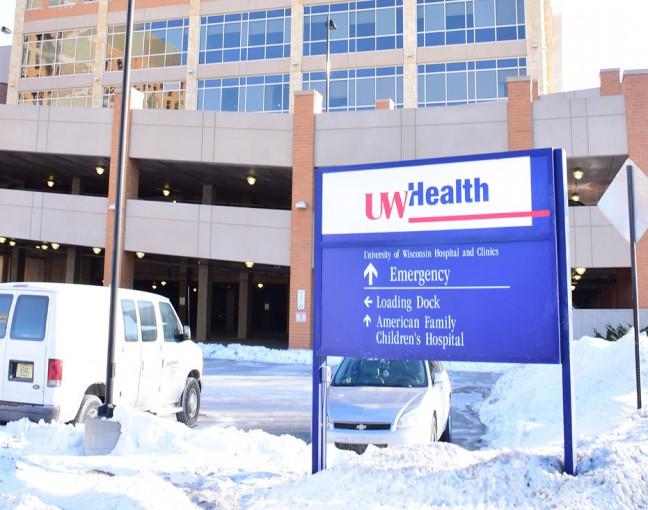A UW Health nurses’ strike was called off earlier this month after workers reached an agreement with the administration, just before the three-day strike was scheduled to begin Sept. 13.
While undoubtedly a positive step towards better working conditions for nurses at UW Health, there is much to be done to ensure the right to unionize is accessible and protected for public employees in Wisconsin.
The strike was organized after UW Hospital consistently failed to recognize unionization efforts and meet nurses’ needs during the pandemic. UW Health workers have spoken out in recent years on poor workplace conditions, such as overworking nurses and staffing issues.
The agreement was reached in the private residence of Gov. Tony Evers, who played a role in the mediation efforts. The Service Employees International Union Healthcare and hospital officials negotiated a plan that will produce a final answer from the Wisconsin Employment Relations Commission on whether UW Hospital can formally recognize a union. WERC will determine the legality of UW Health bargaining rights under the Peace Act.
Universal changing tables in Dane County addresses issues of gender inequality
“We said for over a decade that the legal situation does not allow us to recognize a union,” UW Health CEO Dr. Alan Kaplan said in an interview with Wisconsin Public Radio.
Kaplan insists the process should only take months to resolve. He believes WERC will settle the dispute and put unionization efforts to rest.
But many interpret the legality of UW Health workers’ bargaining rights differently. For one, Attorney General Josh Kaul wrote in June that UW Hospital could voluntarily engage in collective bargaining with nurses and other employees.
Mary Jorgensen is a UW Health worker who also believes bargaining rights will be guaranteed for health workers following WERC’s official resolution.
“We’re quite sure that we are covered under the Wisconsin Peace Act and that WERC will straighten that out,” Jorgensen said in an interview with the Badger Herald.
This battle is not new. UW nurses officially began the push for a formally recognized union in 2019, according to Wisconsin Public Radio. The nurses have unionized before, but former Gov. Scott Walker’s Act 10 effectively ended all public employee unions in Wisconsin. While it is an encouraging step that an agreement was reached between the nurses and administration, pressure must not be let off UW Hospital.
Improved working conditions for nurses would improve the care patients receive at UW Hospital. The reluctance to allow nurses to unionize at UW Hospital is a continuation of putting profits over people in our healthcare system.
The news of this agreement came shortly after about 15,000 nurses in Minnesota began the largest private-sector nurses strike in U.S. history. Minnesota nurses picketed for similar demands as UW Health workers.
College students struggle to find affordable housing amid inflation
Strikes like these highlight underlying patterns of mistreating essential workers in our healthcare system and a voluntary disregard for taking action that would help patients receive the best care possible.
“[Current working conditions are] not right for new nurses, it’s not right for experienced nurses and most importantly it’s not right for our patients.” UW nurse Shari Signer said at an SEIU Labor Day press conference.
This is a pivotal moment for public employees in Wisconsin. The State Legislature and UW Hospital administration are both in the position to make a change and prove their commitment to workers’ rights. The UW nurses’ movement has the potential to energize healthcare workers across the Midwest and the United States and serve as a leading example for demanding better working conditions.
A rally held on the day of the intended strike celebrated the cancellation of the strike and nurses’ newfound ability to address workplace issues directly with hospital administration. UW Health workers expressed gratitude for Evers at the rally and SEIU announced support for his re-election campaign as well as Lt. Gov. Mandela Barnes’ Senate campaign. Both have been vocal supporters of the right to unionize and collective bargaining rights.
The UW Hospital administration also has a leading role to play. They could alleviate pressure from the nurses by voluntarily engaging with the public union, as Kaul noted earlier this year, or by meeting the basic needs their nurses are rightfully demanding. This does not appear likely, however, as the administration has made it evident that they have no plans of acknowledging a union unless it is required by law.
Affordable housing project generates new solutions for farmers
Elected officials have the power to prioritize workers’ rights and make Wisconsin a better place to live and work. The state legislature must undergo action to place legal protections on collective bargaining rights for public employees. This is the most long-term solution to ensuring workers are valued and protected.
WERC’s decision in the coming months will establish the legality of UW Health workers unionization efforts and set a precedent for workers throughout the state. Act 10’s legacy has had detrimental consequences on essential workers’ abilities to do their jobs in safe and supportive workplaces.
The wellbeing of our nurses affects the wellbeing of Wisconsinites. UW Hospital must begin to put people over profits and prove that they know the value of their nurses by recognizing their unionization attempt and providing better working conditions for essential workers.
Leah Terry ([email protected]) is a senior majoring in political science and communication arts and pursuing a certificate in public policy.




















